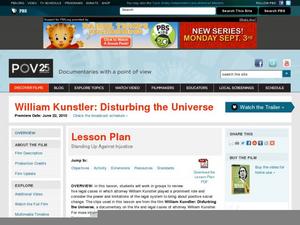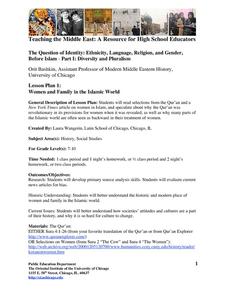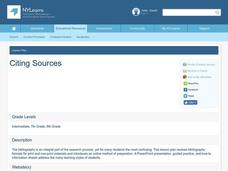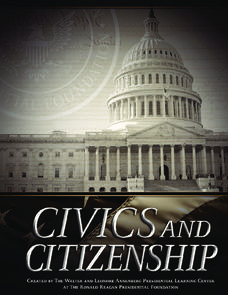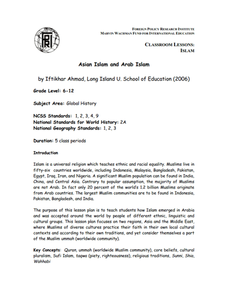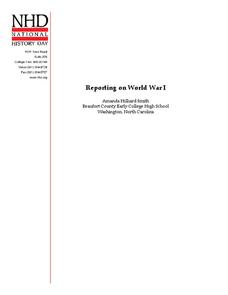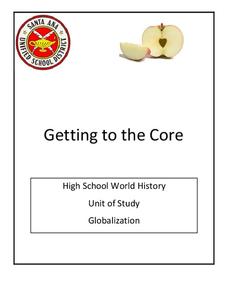PBS
Standing Up Against Injustice
“Sometimes things are lawful yet are actually wrong.” Researchers examine primary and secondary source materials as they study five legal cases involving civil rights attorney William Kunstler in which he attempted to use the legal...
Alabama Department of Archives and History
Strange Fruit: Lynching in America
To continue their study of the Civil War, Reconstruction, and the beginning of the civil rights movement, class members watch the YouTube video of Billie Holiday singing "Strange Fruit" as an introduction to an examination of lynching in...
Harry S. Truman Library & Museum
Marshall Plan: Convince the American People
This is an excellent resource for US history classes, especially AP history. After learning some background on the Marshall Plan, the class, divided into two groups, researches opposing positions on this aid program. Groups read and...
Curated OER
But Where Is It On This Modern Map? A problem-solving, mind-boggling experience!
Trace Columbus' voyages by locating them on 21st Century maps. Using a navigators lesson, 4th graders will examine the Age of Exploration and trace Columbus's routes accurately on laminated world maps using different maps. Note: You...
Curated OER
Danger on the Underground Railroad
Student examines the role of the Underground railroad. In this Post-Civil War lesson, 7th graders read and analyze primary sources. Students create a timeline that details the events of the stories.
Curated OER
Creating a Primary Source Archive: All History Is Local
Students explore personal, local, state, and national history. In this historiography lesson, students search the Library of Congress digital collections for primary sources regarding their family histories framed in local, state, and...
Smithsonian Institution
The Suffragist: Educator's Guide for Classroom Video
Class members take on the role of historical investigators to determine why it took 40 years for women in the United States to get the right to vote. Sleuths view videos and analyze primary sources and images to gather evidence to answer...
University of California
Jewish Holidays
Modern Jewish holidays have ancient roots with many connections to today. Using photographs of primary sources, such as fragments of a shofar, as well as texts, such as the Hebrew Tanakh, learners explore how Jewish holidays reflect...
Curated OER
Gift to the Future
Seventh graders examine the different ways that primary sources are reserved. In this Social Studies lesson plan, 7th graders analyze documents and photographs. Students watch video clips and answer questions on a graphic organizer.
University of Chicago
Women and Family in the Islamic World
How does the Qur'an detail the role of women? What modern social issues are linked to Islamic law? Address these questions with your young historians through close analysis of primary and secondary source documents.
Curated OER
Citing Sources
Pupils explore the purpose and requirements for a bibliography. They examine where to find bibliographic information in a variety of print and non-print sources on an assigned topic. Students prepare a bibliography online using a...
Curated OER
Citing Sources
Practice citation skills with this activity, which takes learners to the Library/Media center. There, they will view a Powerpoint presentation and practice collecting data in both print and non-print sources. All necessary materials are...
Curated OER
Be a Sourceerer's Apprentice
Students examine and discuss various primary and secondary sources. They bring in an example of a primary source, explain how it is a primary source, and complete a worksheet about interviewing a primary source.
Curated OER
Using Pictures to Read the Past
Students use primary and secondary sources, using the Internet and other media.
Curated OER
Cabeza de Vaca Meets the Coahuiltecans
Students examine the difference between primary and secondary sources by examining the journal of Cabeza de Vaca and creating a poster about the Coahuitecan Indian groups. They portray a scene of the groups in 16th Century south Texas.
Briscoe Center for American History
Mary Maverick and Texas History - Part 1
What's the difference between a diary and a memoir? Young historians explore the ramifications of this question as they learn how to use primary source materials to gain an understanding of life on the Texas frontier.
Humanities Texas
A President's Vision: Ronald Reagan
Young historians gain a fantastic overview of Ronald Reagan's term as president through analysis of several primary and secondary sources presented on this educational poster.
Australian National Schools Network
Civics and Citizenship
What is a good citizen? Here is a fantastic unit of ten lessons that will thoroughly cover the concept of civics and citizenship in your class. Examples of activities include learning stations, primary and secondary source analysis of...
Memorial Hall Museum
Problems and Events Leading Up To the Attack of 1704
Groups read primary and secondary sources detailing the ambush at Bloody Brook on September 18, 1675 and the attack on The Falls in May of 1676. After examining the results of each attack, groups reflect on the language used in the...
Foreign Policy Research Institute
Asian Islam and Arab Islam
Focus on the impact and practice of Islam throughout Asia and the Middle East. Learners review the seven major religions, the spread of Islam, and Islamic tenets commonly practiced. They then research one country that practices Islamic...
National History Day
Reporting on World War I
Throughout history, newspapers have reported the events of the day as they unfolded. Using primary and secondary sources from World War I, scholars uncover how the American people learned of the events of the War to End All Wars. History...
Santa Ana Unified School District
Getting to the Core: Globalization
How have advances in technology and communication changed our world? That is the questions that world history students contemplate as they examine a series of primary and secondary source materials
Foreign Policy Research Institute
Ancient and Medieval China
This is a thorough lesson plan on Chinese history that includes readings from primary and secondary sources, guided reading questions, videos, and a take-home final assessment. While it indicates an audience from 9th through 12th grade,...
Teaching History
Jamestown: The Starving Time
Students analyze a variety of primary and secondary sources to determine the cause of the Jamestown starving time during the winter of 1609–1610.


